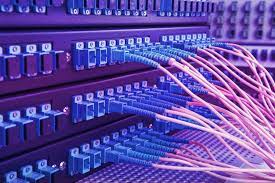To achieve the national broadband penetration target of 70 per cent in 2025, Nigeria needs to work for additional 25.5 per cent in the net two years. Currently, the country’s broadband penetration is put at 44.5 according to the recent data by the Nigerian Communications Commission (NCC).
The broadband penetration was 40.9 per cent in February 2022 but increased by 8.8 per cent to reach 44.5 per cent in July 2022, a figure considered hopeful for achieving the national broadband target of 70 per cent in 2025. The country’s broadband penetration increased from 21.21 per cent in April 2017 to 40.66 per cent in April 2021, and up from that to 44.5 per cent in July 2022. The data by the NCC indicated that in April 2021, 77,605,500 million Nigerians were connected to the Internet, up from 40,481,570 million in April 2017.
The current broadband penetration as at July 2022 stood at 44.5 per cent with about 90 million internet subscriptions in the country. The Commission said the strides were outcomes of the its regulatory management of the Industry as well as its focused implementation of policies and strategies of the Federal Government of Nigeria. Industry players said the broadband is expected increase astronomically in the next two years with the deployment of 5G. According to them, the new technology will fast track the penetration if only the needed infrastructure and policies are put in place.
The Executive Vice Chairman of the Commission, Prof. Umar Danbatta, said emerging technologies and advancements in the sector demanded that the Commission is prepared to match these developments with appropriate regulations and guidelines. “With the technological advancements anticipated in the coming years, it is expected that there will be a proliferation of devices in the industry. It is, therefore, essential for the Commission to ensure that the right regulatory frameworks can accommodate such eventualities,” he said.

Dambatta said quest by the Federal Government for digital economy driven by the Commission to support national development and economic diversification had led to the broadband penetration in Nigeria increasing by 91.70 per cent in the last four years. According to him, the country’s broadband penetration will increased more than the target figure of 70 per cent in 2025. “This drive is also mirrored in the important role that telecommunications plays in connecting businesses, governments and the society at large.
As a result of the economic and social disruptions caused by the recent COVID- 19 pandemic, more people across the globe have become increasingly reliant on telecommunications infrastructure for information, meeting social distancing restrictions and working from home. It has become clear that the connectivity of people being driven by the Commission is one of the key factors that facilitated Nigeria’s successful navigation of the disruptions caused by this historic pandemic.

